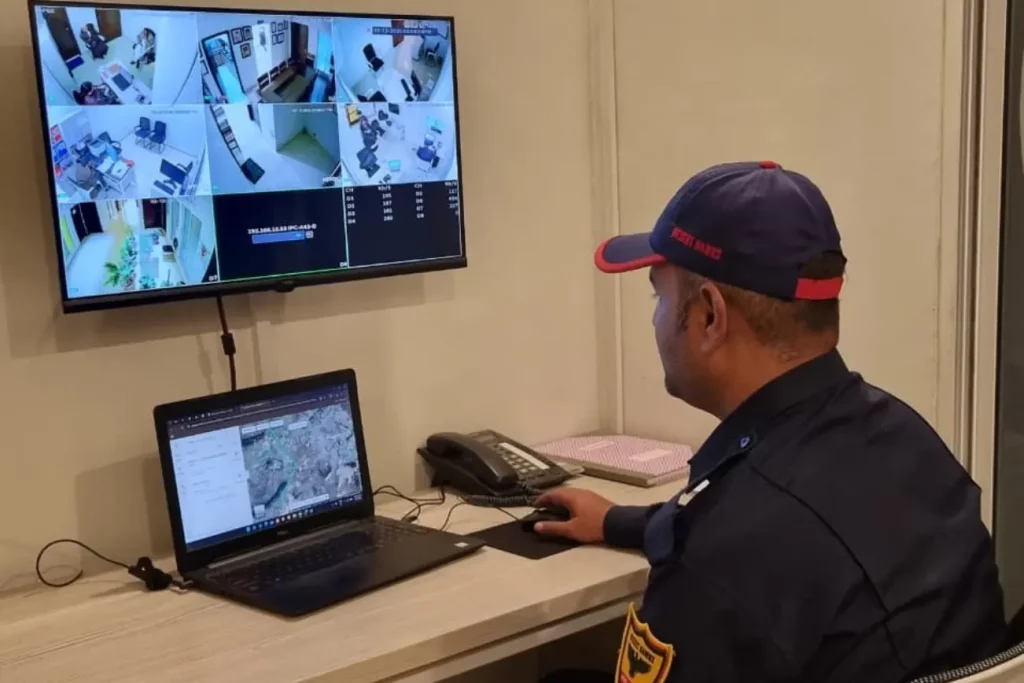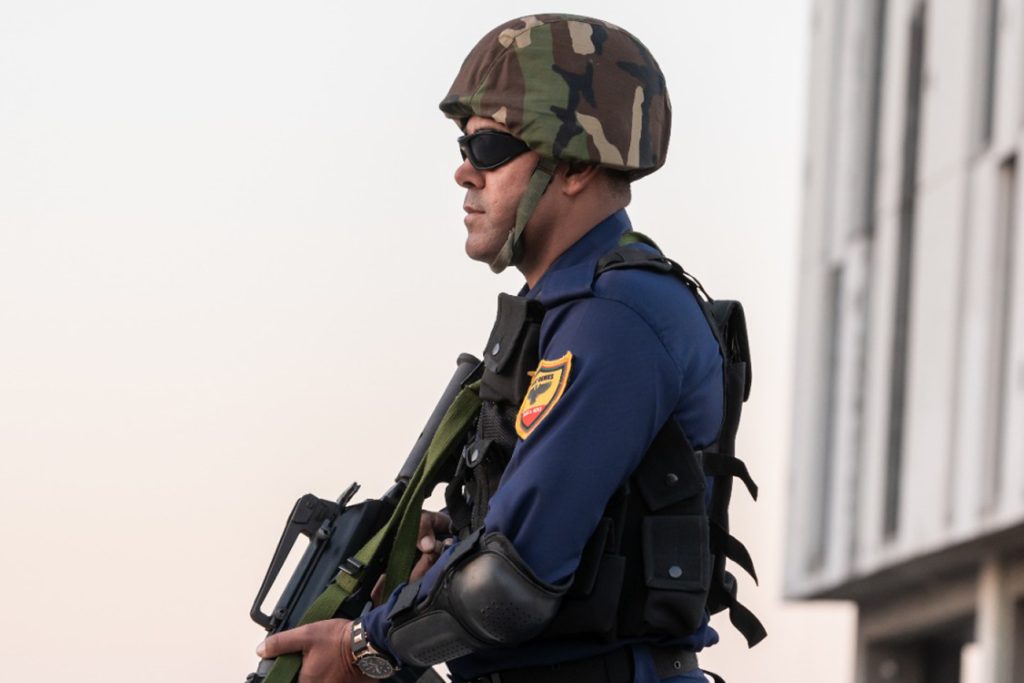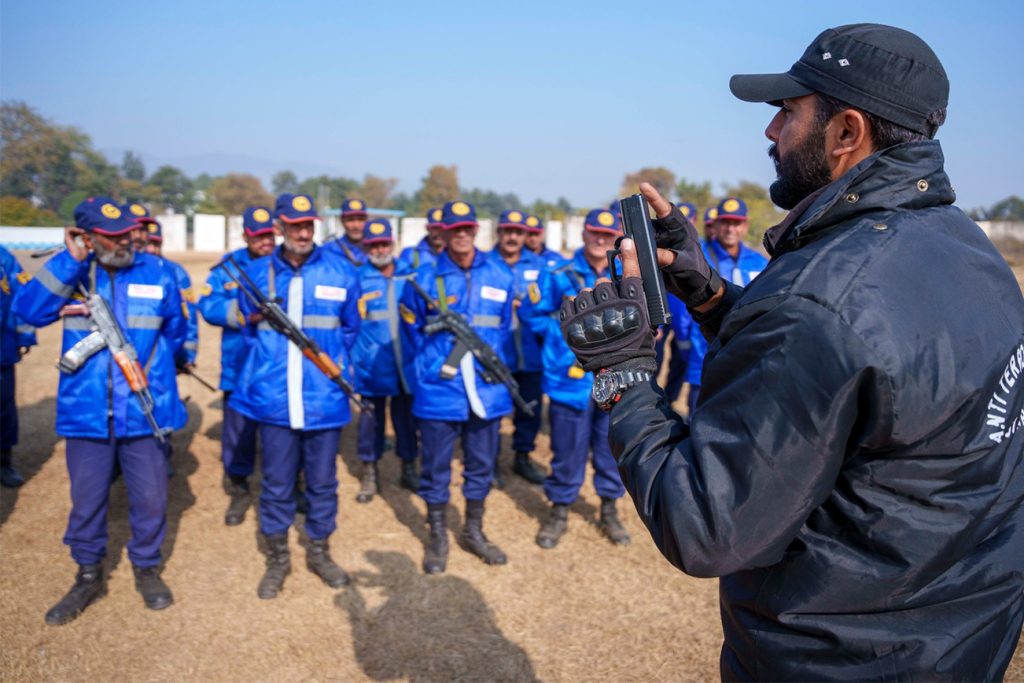Security Crisis Management
Professional crisis management services in Pakistan helping businesses, events,
and institutions stay resilient with 24/7 protection and expert response.
At Desert Hawks, we provide expert Crisis Management Services in Pakistan to help organizations prepare for emergencies and respond swiftly to incidents that put people, assets, and business operations at risk. Our proactive and strategic approach, backed by real-world experience, ensures resilience when it matters most.
We design comprehensive crisis management plans that prevent threats from escalating and safeguard your organization’s continuity. From natural disasters and cyberattacks to political unrest and operational disruptions, Desert Hawks keeps your business secure, stable, and operational 24/7.
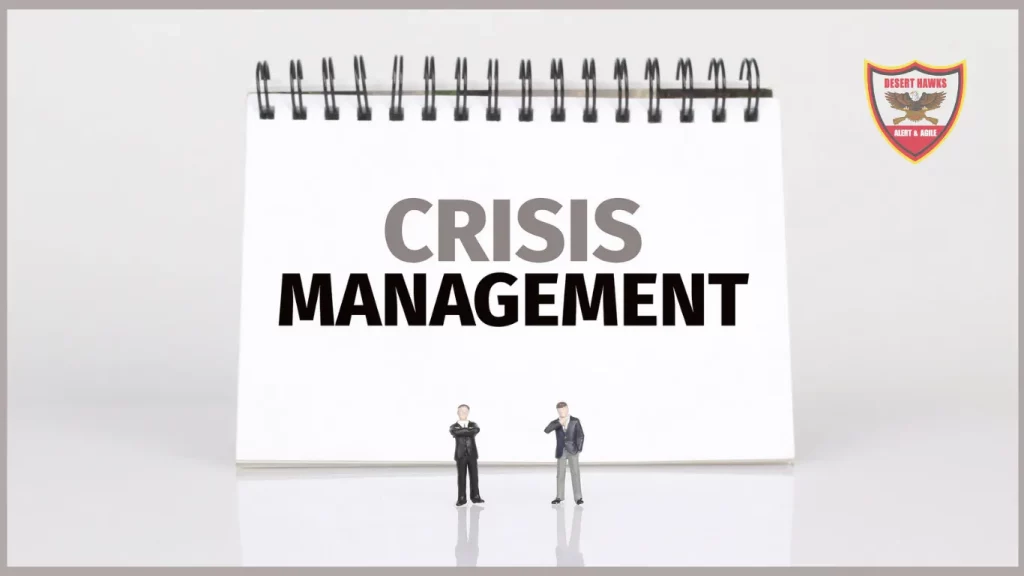
Service List Section
- Tailored Security Strategies: Customized crisis prevention and response plans designed for 24/7 protection of your personnel, assets, and operations.
- Crisis Response Support: Expert advisory and coordination services to guide swift, effective decision-making during high-pressure situations.
- Secure Travel Planning: Risk-aware travel logistics for staff and high-value shipments, ensuring safe passage even in volatile environments.
- Rapid Crisis Action Teams: Deployable teams trained for quick, organized responses that minimize damage and restore stability.
- On-Ground Risk Assessments: Real-time site evaluations to identify vulnerabilities and implement immediate safety measures.
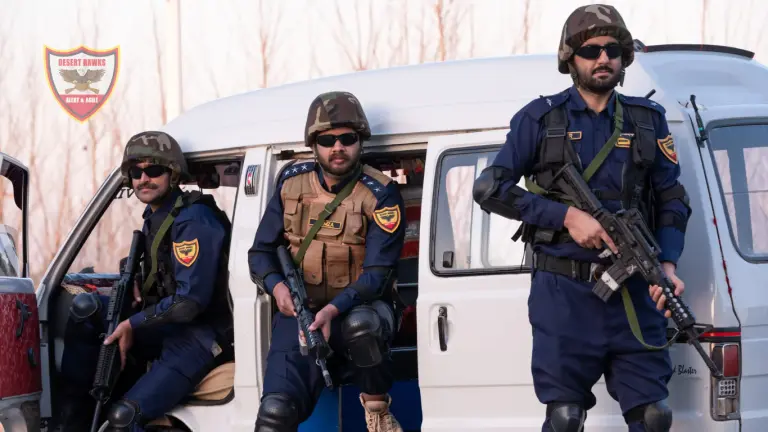
Why Choose Desert Hawks for Crisis Management?
- Licensed & Experienced Teams
- Nationwide Coverage (Karachi, Lahore, Islamabad)
- Proactive & Customized Strategies
- 24/7 Rapid Response Units
- Trusted by Businesses & Communities
Trustindex verifies that the original source of the review is Google. Excellent Experience of interacting and working with Desert Hawks, strong recommendedPosted onTrustindex verifies that the original source of the review is Google. Top-notch service with excellent attention to detail. I trust them completely with home protectionPosted onTrustindex verifies that the original source of the review is Google. provide excellent security services for businessesPosted onTrustindex verifies that the original source of the review is Google. Absolutely recommend their highly professional security services for homes.Posted onTrustindex verifies that the original source of the review is Google. Providing excellent services 24/7, even on public holidays. Highly recommended.Posted onTrustindex verifies that the original source of the review is Google. Highly recommended. Reliable, professional, and vigilant , this security team has my full trust and endorsement 👍💯Posted onTrustindex verifies that the original source of the review is Google. had great experience thanks for your excellent security services.Posted onTrustindex verifies that the original source of the review is Google. Posted onTrustindex verifies that the original source of the review is Google. Posted onTrustindex verifies that the original source of the review is Google.
Our Security Services
We identify potential risks before they become real threats, helping you take proactive steps to protect people, assets, and operations, whether you’re in the field
From trained guards to on-ground defence, our team acts as your first line of protection. Disciplined, alert, and ready to secure every inch of your
Stay one step ahead with 24/7 surveillance, live tracking, CCTV, and real-time updates that keep your eyes everywhere, even when you can’t be there yourself.
We train your teams like professionals. Easy-to-grasp modules, real-life drills, and scenario-based learning help build strong response skills for every security situation.
We blend high-tech tools like AI cameras, access control, and motion sensors with physical security to build systems that are smart, seamless, and seriously effective.
Industries We Protect with Crisis Management
Corporate Offices & Factories
Retail & Shopping Malls
Events & Large Gatherings
Educational Institutions
Banks & Financial Institutions
Government & NGO Facilities
Crisis Management Model
A crisis management model is a step-by-step playbook designed to help you prepare for, respond to, and recover from sudden events that can put people, property, or business reputation at serious risk. At Desert Hawks, we follow a six-stage approach that keeps our security teams sharp, organized, and ready for action in any emergency.
Identify and Assess Risks
We begin by noticing any risks such as weather events, burglaries, or other serious problems. The teams go through each risk and decide on its likelihood and possible results. During their patrols, guards are taught to identify suspicious things right away and inform someone straight away. A thorough risk analysis allows you to build a reliable response plan.
Plan and Prepare
After figuring out what the challenge is, we put together practical ways to respond. Examples are team responsibilities, how to exit safely, lockdown drills, and the equipment staff should keep. Regularly, our guards practice situations that could happen in real life, so they are prepared to act promptly. Taking the time to prepare makes everything easier when time is short.
Activate and Respond
When a crisis occurs, being fast is very important. We react to incidents when we get alerts or confirmed reports. Security guards go into action by closing off certain areas, escorting people to safety, providing simple first aid, and linking to the emergency responders. Because of this, they are able to switch from regular work to crisis management quickly.
Communicate and Coordinate
Ensuring every member of the team knows what’s happening is very important when things are tense. Relying on radios and digital tools, our teams can provide quick updates. Officers are prepared to report situations as they happen, ask for backup, and follow the instructions and plans given in real time. Communication exercises allow teams to operate more efficiently and always stay connected
Recover and Resume
Once the crisis is under control, we focus on bouncing back. Guards help resecure the area, check for damage, and assist with safety reviews. They also log detailed incident reports that can support insurance or official reviews. This helps your business get back on track without unnecessary delays.
Review and Improve
After every drill or real incident, we sit down to see what worked and where we can get better. Guards share what they experienced on the ground, including any gaps in tools or procedures. We revise our crisis plans and training to stay on top of our game for whatever comes next.
Hire Crisis Management Experts in Pakistan
Don’t wait for a crisis to strike — prepare today. At Desert Hawks, our licensed teams deliver expert Crisis Management Services in Pakistan, ensuring your people, property, and operations remain safe under any circumstances. Contact us now for a free consultation.
FAQs
Crisis Management is the process of preparing for, responding to, and recovering from unexpected events that could harm people, property, or operations. It helps businesses stay resilient and minimize disruption.
Our trained crisis teams respond quickly with tailored action plans, clear communication, and rapid deployment of resources to stabilize situations and protect assets.
Yes. Desert Hawks provides nationwide crisis management services, including Karachi, Lahore, Islamabad, and other major cities across Pakistan.
Absolutely. We design crisis management strategies for corporate offices, industrial facilities, retail outlets, government institutions, and public events.
Yes. Our crisis response units operate around the clock, ensuring protection and support whenever emergencies occur.
We help organizations prepare for and respond to natural disasters, cyberattacks, political unrest, security breaches, and operational disruptions.

